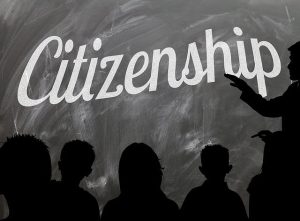CIVICS

Civics is an essential subject that every citizen should understand, as it shapes the way individuals interact with their government, community, and fellow citizens. From understanding democratic principles to participating in elections, It empowers people with the knowledge and tools needed to be informed and active members of society. This article delves deep into the concept of civics, its importance, its components, and its impact on personal and national development.
1. What is civics?
It explores how governments function, how laws are made, and how citizens can influence the political process. It’s not just about memorising facts—it’s about understanding systems of power and governance and learning how to engage with them effectively.
The term “civics” comes from the Latin word civicus, meaning “relating to a citizen.” At its core, it is also teaching individuals how to be good citizens—people who are informed, engaged, and committed to the well-being of their country and community.
2. The Importance in Society:

It is vital in any democratic society. When citizens understand how their government operates, they are more likely to participate in duties such as voting, attending town meetings, or engaging in peaceful protests. A strong civics education promotes accountability and transparency by encouraging citizens to question authority and demand better governance.
It also fosters a sense of national identity and unity. It teaches values such as justice, equality, and freedom—principles that are fundamental to democracy. Moreover, this education nurtures skills like critical thinking, debate, and conflict resolution, which are essential in both personal and public life.
Without it, individuals may lack the knowledge needed to make informed decisions about public policies and leaders. This can lead to apathy, manipulation, and the decline of democratic institutions.
3. Key Components of Civics Education:
A comprehensive civics curriculum covers several important areas that help individuals understand and participate in public life. These include:
a. Government Structure:
It helps to teach how different levels of government (local, regional, and national) work. It explores the roles of the executive, legislative, and judicial branches and how they interact to create and enforce laws.
b. Constitution and Rule of Law:
Students learn about the constitution, the supreme law of the land, and how it protects individual rights and ensures justice. It emphasises the importance of the rule of law, meaning everyone is subject to the law, regardless of status.
c. Rights and Responsibilities:

This education outlines both the rights guaranteed to citizens—such as freedom of speech and religion—and the responsibilities they must uphold, like obeying laws, paying taxes, and serving on juries.
d. Participation:
A crucial part of civics is learning how to participate in the democratic process. This includes voting, petitioning the government, volunteering, and even running for office.
By understanding these components, individuals are better equipped to contribute to their communities and protect democratic values.
4. Necessary for the Modern World:
In today’s digital and globalised society, It has taken on new dimensions. The rise of social media and online platforms has changed the way citizens communicate, organise, and influence policy. Modern civics education must now include media literacy—teaching people how to discern credible information, identify fake news, and understand the impact of online activism.
Moreover, as global issues like climate change, migration, and economic inequality transcend national borders, civics education must encourage a broader sense of global citizenship. Understanding international institutions, treaties, and global cooperation is increasingly relevant for modern civic engagement.
Digital tools also offer new opportunities for civic participation. Online voting systems, virtual town halls, and e-petitions make it easier for people to engage with government and voice their concerns. However, these tools must be balanced with an understanding of digital ethics and responsibility.
5. The Role of Schools and Communities in Teaching Civics:
Schools play a critical role in providing civics education. Through lessons, discussions, and real-life simulations, students learn how democracy works and how to participate effectively. Mock elections, debates, community service projects, and student governments are just a few examples of how civics can be brought to life in the classroom.
But education doesn’t stop at school. Families, communities, and local organisations also have a role to play. Community programs that involve young people in decision-making processes help build their confidence and commitment to civic life.

Encouraging young people to volunteer, attend public meetings, or get involved in local campaigns fosters a culture of civic responsibility from an early age. In this way, civics becomes more than a subject—it becomes a way of life.
6. Why Civics Matters More Than Ever
In an age of misinformation, political polarisation, and declining trust in public institutions, civics education is more important than ever. It helps citizens hold leaders accountable, protect their rights, and contribute to a just and functioning society.
Furthermore, it can be a powerful tool for social change. History has shown that informed and engaged citizens have the power to challenge injustice, end oppression, and demand a better future. Civil rights movements, anti-corruption campaigns, and democratic transitions around the world have all been driven by citizens empowered by civic knowledge.
Conclusion:
It is the foundation of a healthy and vibrant democracy. By understanding how governments work, what rights and responsibilities citizens have, and how to participate in civic life, individuals become empowered to make a difference. A society that values civics is one where citizens are not just observers but active builders of their communities and nations.
As challenges continue to evolve in our increasingly complex world, the need for robust civics education remains urgent. Let us strive to educate ourselves and others, not only for our own benefit but for the betterment of the entire society.
